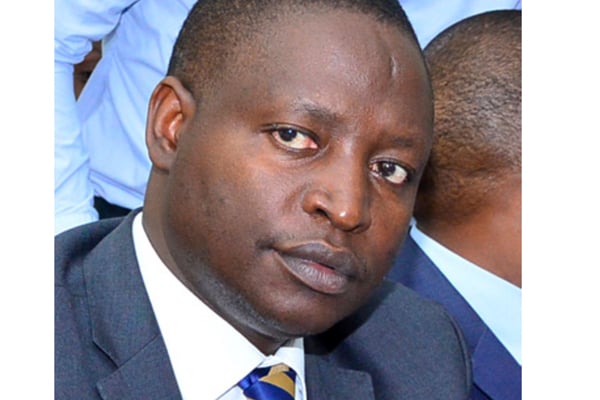Prime
Government to support manufacturers

Mr David Bahati, the State minister for Trade, Industry and Cooperatives
What you need to know:
- Minister Bahati said this while in the company of Gen Wilson Mbadi, the State minister of Trade, during their tour of the East African Medical Vitals in Namanve Industrial Park on June 7.
The Minister of State for Industry, Mr David Bahati, has assured manufacturers that the government will not only focus on minting money from them but will also tackle challenges that they are grappling with. He said this move is intended to create a conducive business environment.
“We are grateful for the contribution they are making in terms of revenue but you cannot milk a cow that you are not feeding. So, we came to check how the cows are doing, whether they are getting good grass, whether they are being looked after well, and then we go back and resolve their issues,” Minister Bahati said.
“We promised that we shall reduce power from 10 cents to 5 cents, so we are working on that progressively and we hope that shortly, every factory in the country, especially starting with those in the industrial parks, will be paying 5 cents for electricity,” he added.
Minister Bahati said this while in the company of Gen Wilson Mbadi, the State minister of Trade, during their tour of the East African Medical Vitals in Namanve Industrial Park on June 7.
Minister Bahati also explained that the government would ensure harmonisation of standards of the products produced by various factories to boost import substitution and export promotion.
Purpose
On the other side, Gen Mbadi said the tour enabled him to familiarise himself with the industry following his recent appointment to the docket.
“For me, I am new in this sector. So, the reason I am here is because I want to get familiar with what goes on in the industry. I am impressed with what is going on here. People are sticking to standards because that is what determines the market,” Gen Mbadi said.
He also emphasised the importance of value addition to Uganda’s raw materials to make more money out of them.
Mr Brian Kavuya, the managing director of the East African Medical Vitals, decried challenges associated with funding.
“Our biggest challenge is access to adequate financing. You find that the smallest factory in Southeast Asia is about 10 times our size,” he said.
He added that East African Medical Vitals produces surgical and examination gloves and can meet 80 percent of Uganda’s demand, thereby commending the government for offering them the market by buying their products.
He further said the company is conducting feasibility studies for catheters, cannulas, IV giving sets, and condoms, prioritising the use of technology.
Mr Kavuya explained that the latest state-of-the-art technology that they imported from Malaysia has enabled them to manufacture high-quality products at the rate of 10,000 pieces per hour, which is expected to double in the future.




